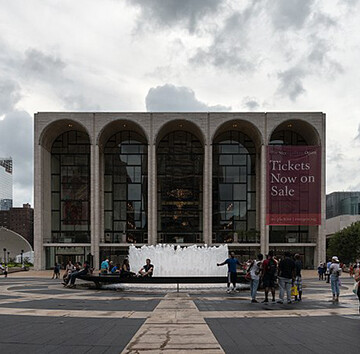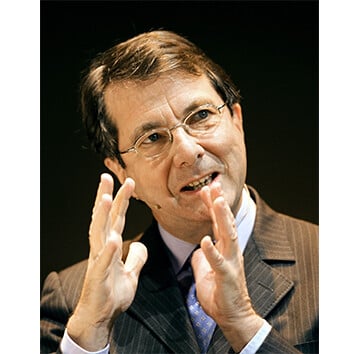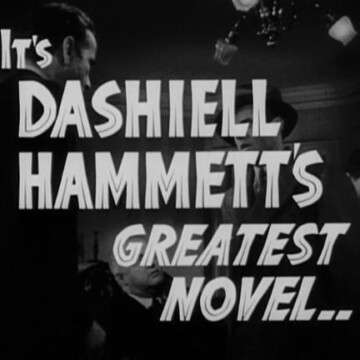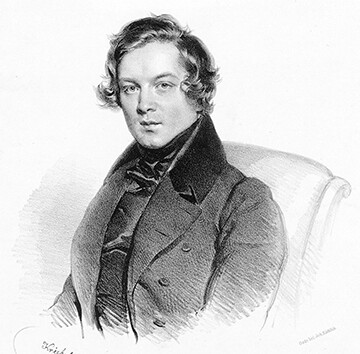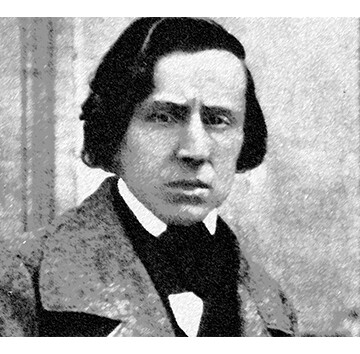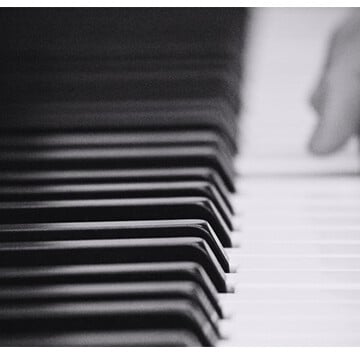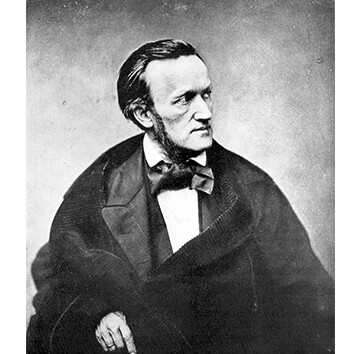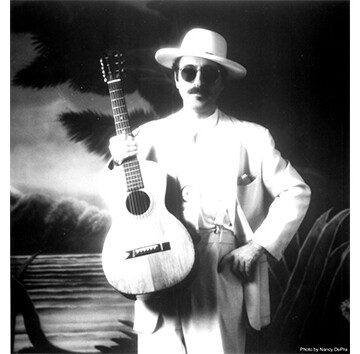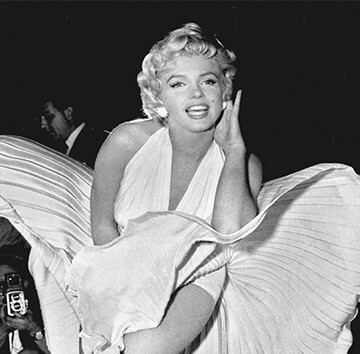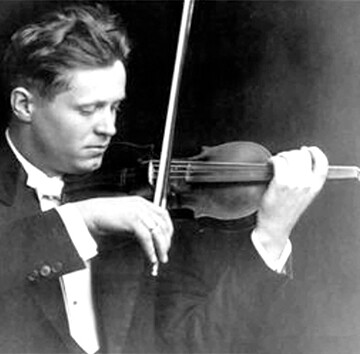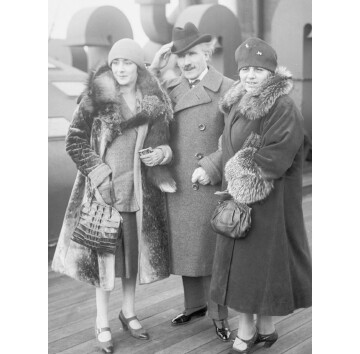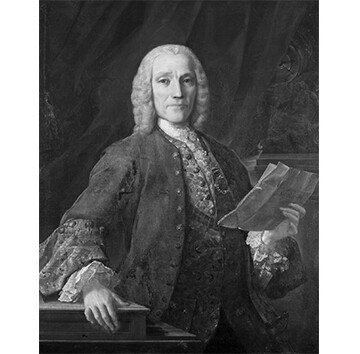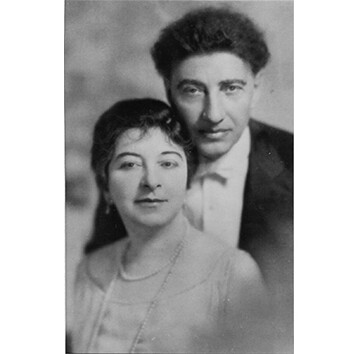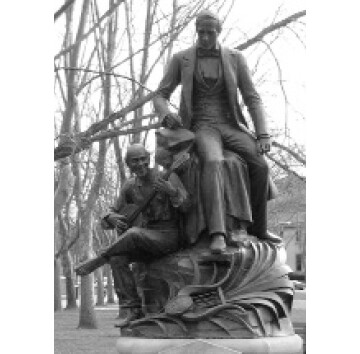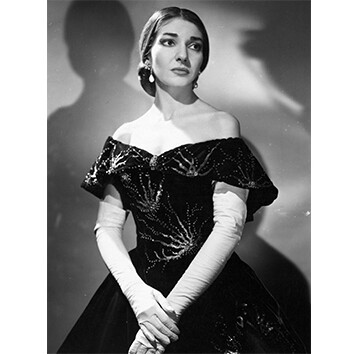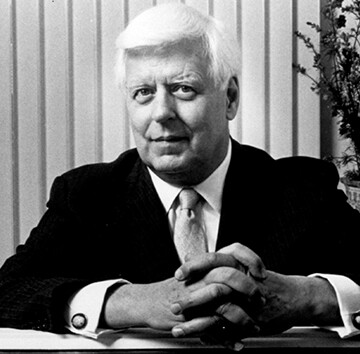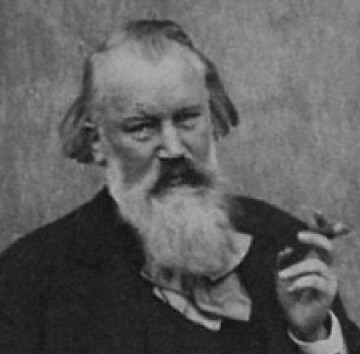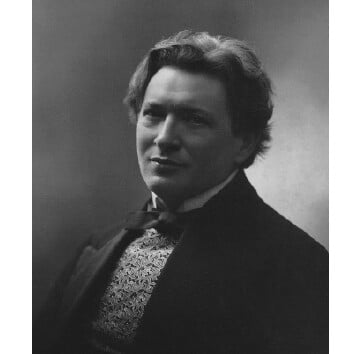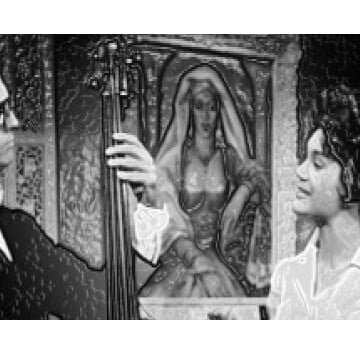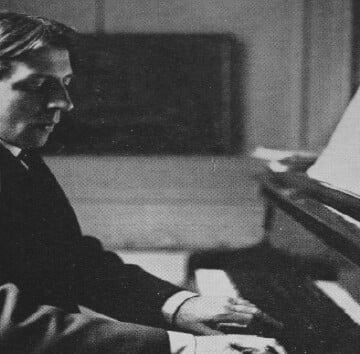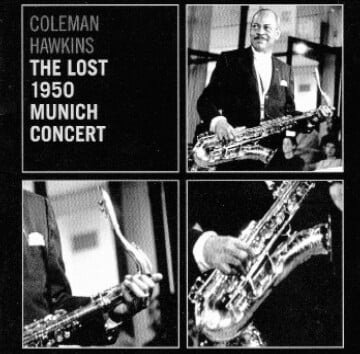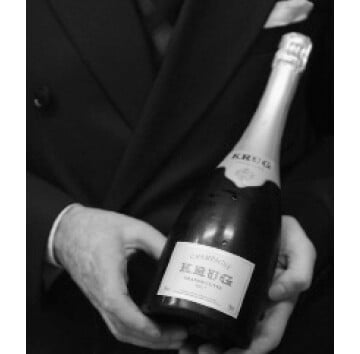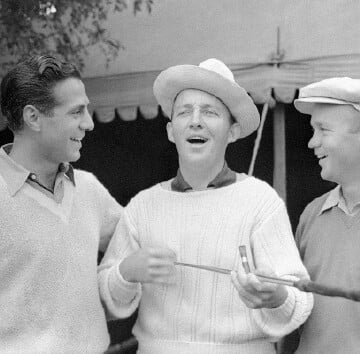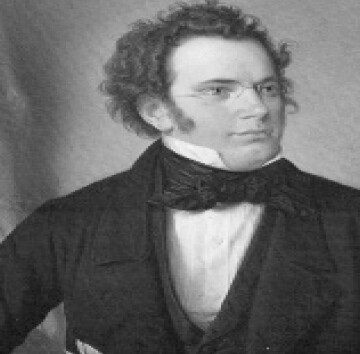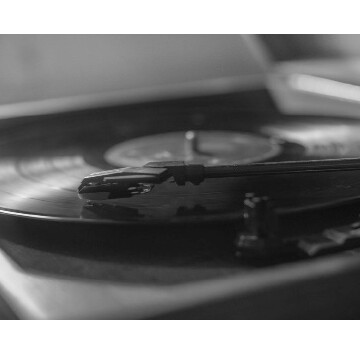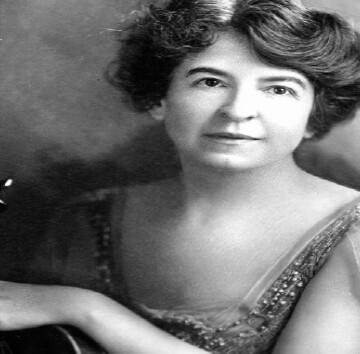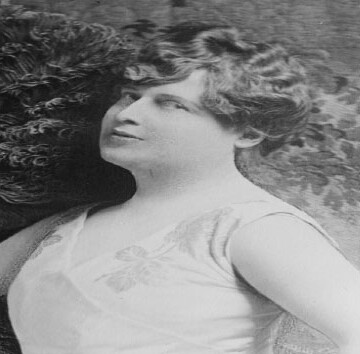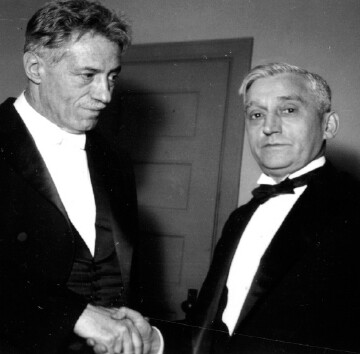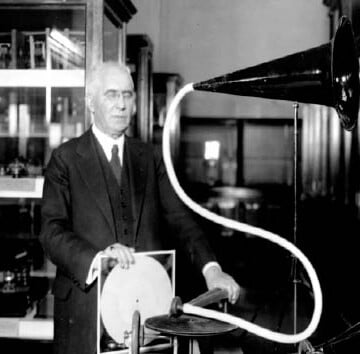I once asked a most discriminating gentleman, who had studied singing, which opera he would call his favorite. He named La traviata. Since then, René Weis has lent support to his opinion at fascinating length in his book, The Real Traviata: The Song of Marie Duplessis (2015). In demonstrating the worth and intensity of Verdi’s...
Author: James O. Tate (James O. Tate)
Opera Managed and Mismanaged
Heidi Waleson’s Mad Scenes and Exit Arias: The Death of the New York City Opera and the Future of Opera in America (2018) is a challenging and enlightening work—one which dares much and succeeds remarkably well. We must concede that we do not often find a work of expository prose to be as appealing as...
Opera Near & Far
My relationship with Barnes & Noble is fraught with emotion simply because it is a big bookstore, among other things. And I am one of those types—an inveterate reader—who is easily hooked. I was once embarrassed when a lady told me that she had caught herself reading soup-can labels: As one who had done the...
Hell Man
From the June 2000 issue of Chronicles. “My views on Hammett expressed [above]. He was tops. Often wonder why he quit writing after The Thin Man. Met him only once, very nice looking tall quiet gray-haired fearful capacity for Scotch, seemed quite unspoiled to me. (Time out for ribbon adjustment.)” —Raymond...
Opera Without Meaning
Last year, in a January 3 review published by the Daily Telegraph, Hannah Furness made some remarkable assertions concerning the presentation of traditional operas on the modern stage. Furness quoted the tenor Michael Fabiano, then playing the Duke in a Royal Opera House production of Rigoletto, to the effect that “the treatment of women in...
The Carnaval Prank Was On Me
Sometimes the best things come in distorting packages, no matter how good they are. And sometimes that good is itself misleading when it has great appeal, or even particularly then. I was not yet a teenager when I stumbled into the discovery of a recording of tremendous command—an LP with Schumann’s Carnaval, Op. 9, on...
Chopin’s Life and Times
Alan Walker has insisted, at the very beginning of his massive new biography of Chopin, that the composer has today a unique global reputation and appeal. And when we consider the evidence that justifies his claims, we must admit that this evidence is most impressive—and also that some of it is the opposite: doubtful and...
Sex, Drugs, and Classical Music
I had long been in search of a pretext for writing a column on sex, drugs, and classical music when I discovered that, by extraordinary coincidence, just such a subtitle adorned Blair Tindall’s memoir, Mozart in the Jungle (2005). The televised series of the same name seemed also to feature much sex, drugs, and classical...
A Tour of Overtures
We somehow owe it to ourselves to contemplate the useful word sinfonia, one that once denoted the overture to an opera and suggested a pleasing combination of sounds. So yes—the term that denotes the tradition of symphony is derived from another musical convention which we think of as not symphonic, but rather related to opera. ...
The Legacy of Leon Redbone
Leon Redbone left the scene in 2015—I don’t mean that he expired, but simply that he retired. There was mention at the time of health concerns, but he was through with television appearances and concerts and touring, and with recording as well. There has been almost nothing about him on the national scene since then,...
The Pavarotti Effect
I have been told that there is something called the “Pavarotti Effect,” and that this phenomenon is observable and definable. Perhaps sometimes the Pavarotti Effect was an affect, or perhaps it was subsumed by the “Superstar Effect,” as Sherwin Rosen called it in a paper published in The American Economic Review in 1981. Rosen insisted...
Simon Pure and Impure
The other day I came across the pianist Simon Barere on YouTube, and I was glad to see him there—the recognition he has received is certainly deserved, though it is hard to know what would be the appropriate reward to a performer who never got his due. And just when he seemed to be getting...
Those Oldies But Goodies
An Italian-American restaurant I count on features sound reasons for my presence there, and that of others. I like the tone in that environment. There is an aspect of 1950’s atmosphere—the place is quiet, the lighting subdued, and the manners polite. The menu is gratifying when the garlic is held in control, and the service...
Adolf Busch & Colleagues
Some two decades ago, I found myself preparing for a trip to Niagara Falls, where I was to meet a lady. I had not been to Niagara Falls before, though I was familiar with the movie Niagara (Hathaway, 1953), which has sometimes been called the best Hitchcock movie not by Hitchcock. I didn’t want to...
The Electric Conductor
Back in the day, was there anyone more famous than Arturo Toscanini? Everyone knew who he was, what he did, and what he looked like. He was more famous than Walt Disney and got coverage like a movie star. And even the sight-challenged were aware of his performances and recordings. The first recording I ever...
The Lowdown on Music Appreciation
Music Appreciation is a revealing phrase: It doesn’t mean what it says. It doesn’t mean that music is getting more expensive, though it is true that music is appreciating. It doesn’t mean even a proper regard, as in “I appreciate your efforts.” What it does mean is a matter more of pedantry than of anything...
The Two Lhevinnes
Though too many years have gone by since I last crossed paths with Robert K. Wallace, that doesn’t mean I have forgotten that gifted and accomplished man. I remember him well from sites and scenes in graduate school at Columbia University; from his environment in northern Kentucky and at the old Riverfront Stadium in Cincinnati,...
“The World’s Greatest Pianist”
The lives of musicians can be more than a bit repetitive. The same patterns are repeated again and again, as is the case with athletes—with all people who master a particular art or calling. The gifted one excels and develops a career, sometimes without breaking off from the master. This pattern fits Mozart—and also Nadia...
My Old Kentucky Home, Good Night!
History is rewritten, memory is transformed, recognition is withdrawn, and the cultural context is recast. The recent toppling of historical statues has proceeded so effectively that we can hardly remember a previous period of statue erection or insertion in Richmond, Virginia. The former capital of the Confederacy had to be punished for its Monument Avenue,...
Maria Callas, Four Decades On
Many’s the person who can tell you what he was doing on November 22, 1963, when he heard the news. Many more can tell you what they were doing on the morning of September 11, 2001. And there are also quite a few who remember September 16, 1977, when the death of Maria Callas was...
The Vocal Scene
photo of Rosa Ponselle as Reiza in Oberon Of course my account of “the vocal scene” is not by the late George Jellinek—that cultured gentleman of Hungarian background. He had an extensive, even encyclopedic knowledge of the history of singing. His presentations of The Vocal Scene were the best things of their kind I have...
The Romantic Revival
The first thing to say about the Romantic Revival is that the phrase itself is a bit ambiguous, though I haven’t meant to be misleading. Romanticism originally had an aspect of revival of the medieval, as in the Gothic revival and the revival of medieval romance. And the phrase could also denote the return to...
Eine Kleiber Ist Genug—Nicht
When Carlos Kleiber died in 2004, the world didn’t find it out until he had been gone for six days. The elusive maestro/uncanny conductor had escaped the exploitative notice of the press for one last time. There were the predictable reactions to the passing of the mystery man, but there was a difficulty in comparisons,...
The Reminiscences of Earl Wild
I was thinking recently about Earl Wild for several reasons: his achievement as a pianist; his substantial and extended contribution to the “Romantic Revival” through his performances and recordings; and my own memories of exchanges with him after three of his appearances in New York City. When I beheld him backstage, standing far away from...
Dance With the Devil in the Pale Moonlight
There was a notable convergence some decades ago, one that was noticed musically as two separate and distinct phenomena, but not as a convergence—or even as a conspiracy, or a rivalry. I never heard or saw any acknowledgment that two of the foremost instrumentalists in the world were fiddling around pretty much at the same...
Rambling Rose
As a literalist of the imagination, I have somehow supposed that the fall equinox on September 22 meant that according to astronomical rules, the roses would—with a clunk—stop blooming. But when last December, I saw many rosebushes still going at it even in a northern clime, I had to amend my faith in the lovely...
The Bruckner Problem
There is a Bruckner Problem, yes, or there are even Bruckner Problems, but I think that the longer we consider these problems, the less problematical they are. The first problem is, where to start? We might suppose that Anton Bruckner (1824-96) is remarkable in the fascinating quality of his work. Hardly any composer except Mahler...
There Will Be Brahms
The subject of the Brahms Violin Concerto in D major (Op. 77) is fitting because we are talking about a work that is respected, which is one thing, but also loved, which is more. I had some special times with the Brahms Violin Concerto, even some special bad times, but I always come back to...
Doktor Faust und Der Busoni
When they are so easily available for free, the opportunities on YouTube don’t leave much excuse for not taking advantage of them, even though in one particular case at least, the musical presentation is puzzling or unidiomatic or off-putting. But even there, gradually, the realization sets in—the realization that one hears the distillation of a...
From This Culture, They Say You Are Leaving
The statistics that break down the consumption of music into types and groups are not very comforting to consider. But if we really want to know what the musical situation is, rather than to entertain a fantasy of what it ought to be, we would have to acknowledge the realities of musical art in our...
Opera: Grand and Not So Grand
People sometimes seem to be prejudiced against opera for reasons that are arbitrarily unconvincing. These reasons turn out to be an antipathy based on class (opera is the province of the privileged), or antipathy resulting from sheer musical ignorance. (Trained voices don’t appeal to the contemporary ear.) These two specious reasons are important because the...
The Twilight’s Last Gleaming
There are so many difficulties with our National Anthem that it’s hard to keep up with them all. But the explicit question that it asks—whether we see the Stars and Stripes still flying after the twilight’s last gleaming—is actually a pertinent question today, and not only one about the bombardment of Fort McHenry in 1814....
Their Record Is Scratched
A jolt, a blast, even a high like the election of Donald Trump to the highest office in the land is something to be savored while the euphoria lasts. And before the bliss fades, this would also be the time to reflect upon all the televised authorities who got everything wrong, and to reflect upon...
Music Sounded Out
Now, you know I am indulging myself when I think of the nominated topic and come up with examples that are all piano recordings! That’s a limitation within a limitation, and I admit it. And I am also aware that when we talk about sound, I am supposed to make noises like a hi-fi buff,...
All That Jazz
Extraordinary writing about music doesn’t come along very often, as I have been forced to notice by my own experience—as have my own put-upon readers! But in the realm of classical music, I would suggest that Donald F. Tovey’s Essays in Musical Analysis is an imposing composition, a stunt of writing—the freight of its assertions...
Another Touch of the Bubbly
Well, after 50 years and more in New York, I have heard the fat lady sing, and I know what that means. There have been some issues as the decades have zipped by, I must say; and I have dealt with the problems seriatim—riots, street crime, altercations, the murder of an elderly benefactor, and other...
Get in Deep
Although music doesn’t have an obvious link with golf, I say it does, so that I can contradict myself immediately. The late Sam Snead was and still is well known for his beautiful swing, which he related explicitly to waltz-time, and more than once. Tempo and rhythm were aspects of motion, as he saw the...
Homeland, Homesick, Homework
In 1836, Robert Schumann told the composer who had dropped by that his favorite of Chopin’s compositions was the Ballade in G minor, Op. 23, and the composer agreed with his judgment. Anton Rubinstein thought that everything to be revered in music died with Chopin in 1849, and for this declaration, he has been condemned...
A Monumental Proposal
I was recently perplexed to see in the news that Harvard, the oldest institution of higher learning in the nation, had declared that, though master has no etymological relation to slavery (but rather to magister), the word would nevertheless be abandoned as a title for a resident supervisor of student housing, and be replaced by...
Snobs and Slobs
How very vulgar I have been—I am sorry, and I apologize! I am just terrible, and it is all my fault. And I accept the responsibility. And how could I accept my own shame if I had not done so in public? Yet my own vulgarity has been hedged, because I neither sinned nor confessed...
There’s More Where That Came From
When I first heard chamber music, it seemed an acquired taste, and subsequently a taste I acquired. So I will recite some personal history without any illusion that it matters because it was my experience. On the contrary: I think the story I know could be related to everyone’s exploration of music, because however you...
Music and the Tooth Dentist
As my many devoted readers have already noticed and let me know, though I do love good music, it’s hard to convey the intensity of that devotion. So it occurred to me to write about abject rather than exalted musical experiences. They’re easier to deal with, yet also productive, particularly as the experience of ugly...
First Hearings
Some years ago a fellow told me that I should put my money in CDs, and I did, to my regret in one sense. I thought he meant Compact Discs. Silly me! But maybe not altogether. Since those days, things have changed, but even so, some things never change. I mean that acquisitions have a...
Come Into the Garden, Maud
A year after the American debut of Jascha Heifetz in 1917, James Huneker wrote an interesting sentence in the New York Times: “Much has been said of Heifetz and his musical gifts compared with great violinists of the time—Ysayë, Kreisler, Elman, Zimbalist, Kubelik, and Maud Powell.” We notice that one of these great violinists is...
Her Master’s Voice
Recent publicity to the effect that not one but even two films about Florence Foster Jenkins are in the pipeline sends us what I think is a very ambiguous alert. Florence Foster Jenkins is an arresting subject, no question—but it is unlikely that the phenomenon she represents can be done justice in today’s environment—unlikely being...
Henry Radetsky and Fritz Kreisler
Tossing around a word like music is problematical—and culture is even harder to deploy meaningfully. Nevertheless, I am going to give both a try in a revealing juxtaposition that was brought to my attention by that world-traveling anthropologist Henry Radetsky, an academic colleague and a valued friend. Henry is a cultured man I have learned...
How Long Has This Been Going On?
We live in revolutionary times of rapid technological change, and yes, it is a little disconcerting when the rules morph and the practices mutate. But I did predict years ago that vinyl would be back, and so it is. This year’s junque is next year’s antique. And I remember back even to Before Vinyl. A...
Doing Music Wrong
National Public Radio is a bad idea, as you can tell from the name. But the specific reality is even worse, though I suppose it comes in different forms. The service is varied in that local stations can tailor themselves differently. But I believe that my take on NPR is basically true about the “NPR...
Quiet, Please
Silence can be a bad thing if there is too much of it, but today that is not often the case, for we live in a noisy world. The postindustrial era promised to turn down the volume, but it didn’t—too often, we are ourselves directly responsible for a lot of noise. But not all of...
To Begin With
In response to numerous entreaties, private demand, and the obligations incurred by untold knowledge, I have reluctantly agreed to undertake this Music Column; and I will only continue to inscribe it as long as those three particular conditions remain in full force. Yet I do not conceive The Music Column to be self-preoccupied—rather, it addresses...
